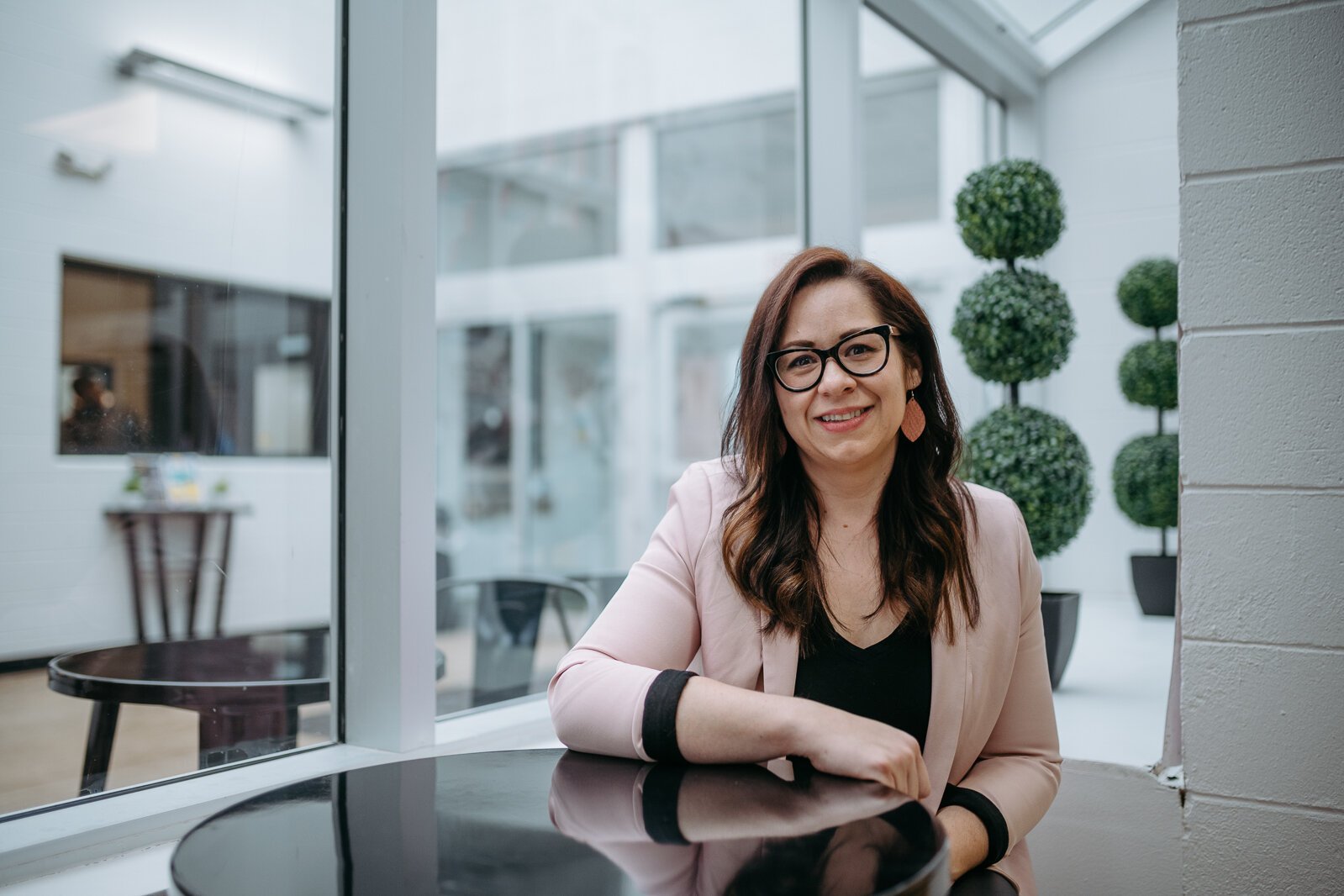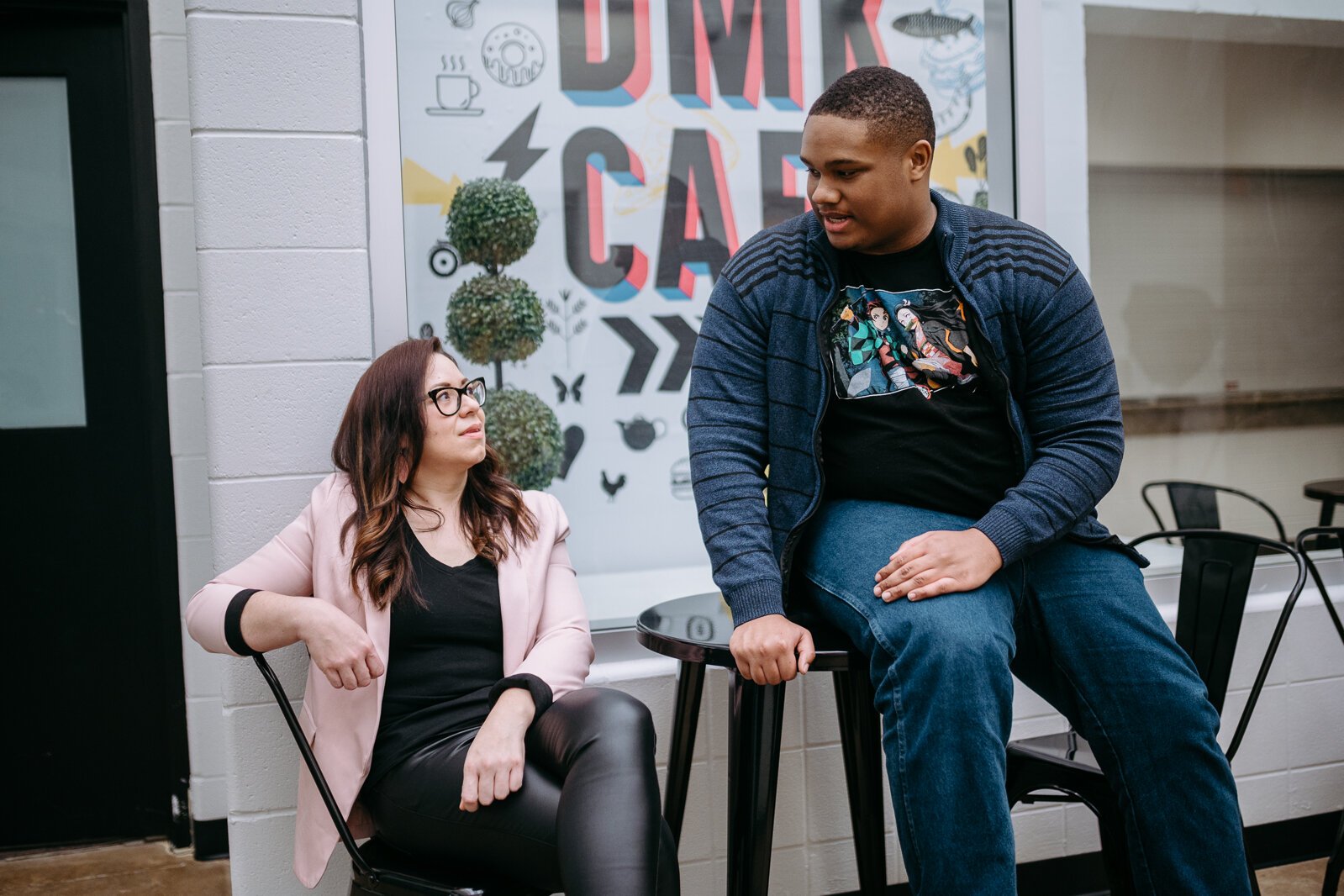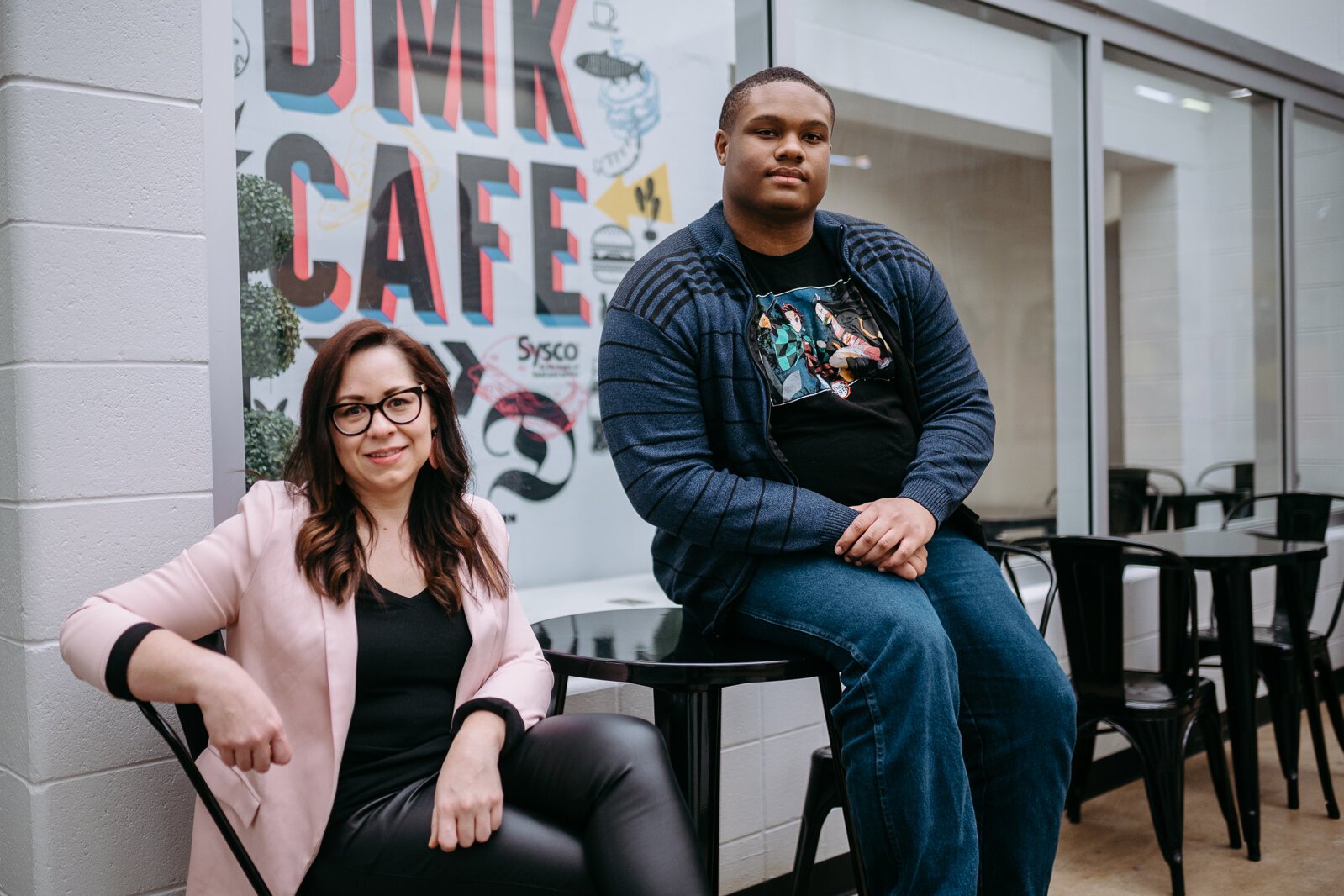A new program created by a Detroit teenager offers free mental health services to young people and aims to inspire them to help others by pursuing careers in mental health.
This initiative, Mental programis hosted by Boys & Girls Clubs of Southeast Michigan (BGCSM). It brings together universities, the health system and doctoral students in clinical psychology and students in social work. The collaboration provides mental health support to BGCSM members, professional development experiences for students, and aims to ultimately expand the behavioral health workforce available to support Detroit youth.
The Mentally Fit Program is the brainchild of BGCSM member Jeremiah Green. He struggled with anxiety and depression and wanted Boys & Girls Clubs to address youth mental health issues. So he began advocating for behavioral health services in clubs. Green delivered his message at BGCSM venues and spoke to the board of directors. Jeremiah Green.
Jeremiah Green.
Because of Green’s efforts – and $1.1 million Health Resources and Services Administration (HRSA) grant — the program was launched with Dr. Tiffany Abrego at the helm. A Wayne State University (WSU), associate professor of psychology and licensed psychologist, Abrego now serves as BGCSM’s executive director of behavioral health. Other partners collaborating on the program include Children’s Hospital of Michigan, University of Detroit Mercy, University of Michigan School of Psychologyand WSU.
We spoke with Dr. Abrego about this unique approach to building a behavioral health workforce in Detroit.
Q: Why is it important for Detroit youth to have greater access to behavioral health services?
A: If you try to find mental health services in this area – and I know because I also work at Wayne State – the waiting lists are months and months long. Even the smallest fee for a community clinic like Wayne State’s is still prohibitive for some of our families. Dr. Tiffany Abrego.
Dr. Tiffany Abrego.
All our services are free. We do not take any insurance. They must be members of the Boys & Girls Club, but membership is only $25 for the year. And they can get membership scholarships. We do not take any insurance. They can get transportation to and from the club. We remove as many barriers as possible so our youth and families can access free and appropriate services.
One of the things that Jeremiah Green really highlighted was that there is still such a stigma among young people and in the black community. Our Boys & Girls Clubs mission is to embed behavioral health into every single thing we do so that it truly eliminates that stigma. So from the age of six, kids get therapy, they have therapy groups, and they know who we are. We are not this separate team that comes in and does special services. We are employees. The children know us. This makes access better.
Q: How are youth referred to services?
A: Last year we saw 713 youth. This year we’re up to more than 1,200. One of the other ways we’re connected to Children’s Hospital of Michigan is through its referral system. They refer children who need some behavioral health services and cannot access them through the health system. We also receive recommendations from schools. They turn to us if a child does not have access to services in the school environment. The school social workers we spoke to are very busy. They have their hands full. Many of them are unable to provide the necessary one-on-one interaction, so they refer them to us.
We are also in the process of partnering with our Boys & Girls Clubs feeder schools. And we will provide on-site services in schools — group presentations and staff training.
We also have a sports psychology program that will also be starting this year. It is about the toxic environment of sports in which our youth have been raised. We really hope to change that perspective for parents, coaches and kids. We have over 13,000 youth on sports teams at Boys & Girls Clubs of Southeast Michigan.
We partner with schools. We partner with families. We partner with the executive team, with the staff, with everyone, because we want to make systemic change.
Q: What about clinical psychology and social work doctoral students working with the mental fitness program?
A: In August, we accepted our first cohort of PhD students in clinical psychology. We have six PhD students on staff. Next year we are recruiting two more students. We also have two social work students and are partnering with the University of Detroit Mercy to recruit additional social work students. Our HRSA grant also covers our didactics so we can have students and staff trained in things like substance use disorders and things like that.
They provide individual therapy, group therapy, family therapy, staff counseling, staff training, staff support groups, and psychological testing – almost all the services that a mental health facility provides, but instead we are an after-school program.
We are currently interviewing for our cohort for next year. At least three of our students who interviewed for next year’s positions are former Boys & Girls Club members. This unique model of community setting and community mental health services is really something that needs to be done in many other places. Dr. Tiffany Abrego and Jeremiah Green.
Dr. Tiffany Abrego and Jeremiah Green.
Q: How will the mental fitness program help develop the future behavioral workforce outside and beyond the program itself?
A: The hope with launching our programming was to reduce the stigma around mental health services and really embed these services into the program so that the language of mental health is normalized and a part of every day. By launching our high school internship with our department this spring, we hope to expose our teenagers to behavioral health careers and open their minds to the possibility of working in a mental health-related field.
Q: Do you think the program will encourage more young people to enter the mental health professions?
A: I definitely think that when youth are exposed to the language of mental health and the stigma is reduced, they see the value in these professions. Especially with our behavioral health internship, I believe it will encourage more young people to enter the behavioral health fields.
Q: Do you think the program will address the specific shortages felt in the Detroit area in the long term?
A: This is a long-term goal. I think a lot of funding and policy changes need to be made to address some of these shortfalls, but the goal is for these youth to be able to help advocate for these needed changes and address some of the shortfalls.
Estelle Slootmaker is a working writer focused on journalism, book editing, communications, poetry and children’s books. You can contact her at [email protected] or www.constellations.biz.
Photos by Steve Koss.
Do you like this story? Sign up for free solution-based reports delivered to your inbox every week.

